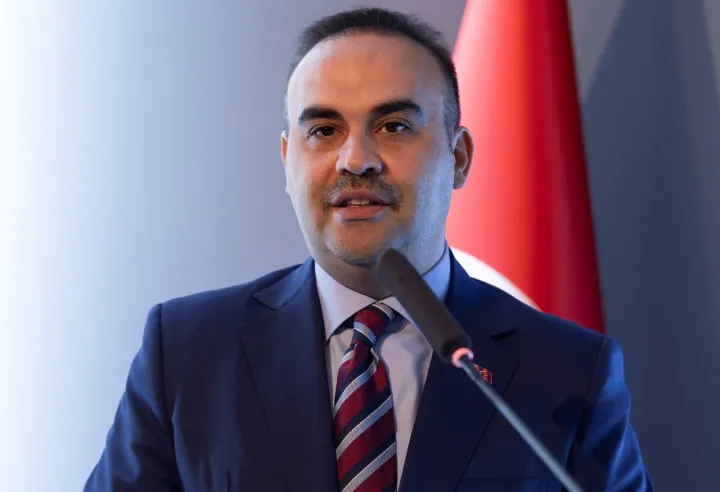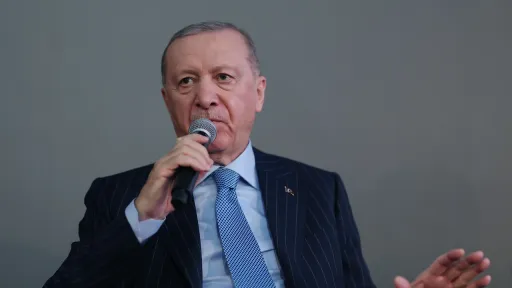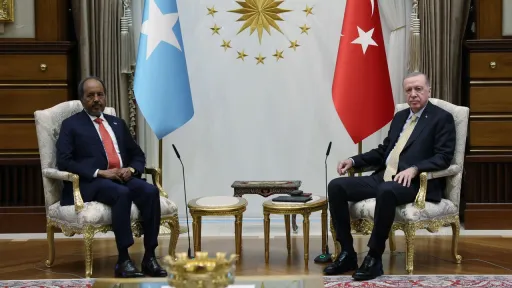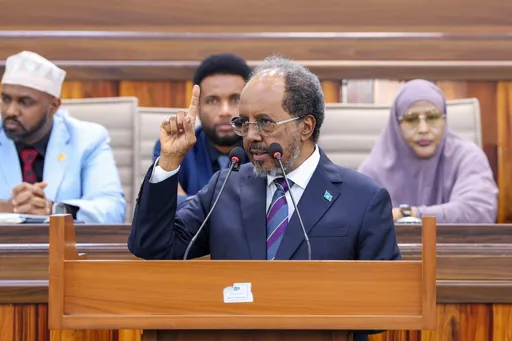Kenya was in a state of shock Wednesday following unprecedented scenes that left parts of parliament ablaze and gutted, as protests over proposed tax hikes turned deadly, prompting President William Ruto's government to deploy the military.
"Deaths, mayhem", read the front-page headline on the Standard newspaper, while the Daily Nation described the situation as "Pandemonium", saying: "The foundations of the country have been shaken to the core."
A heavy police presence was deployed around parliament on Wednesday morning, according to an AFP reporter, the smell of tear gas still in the air.
Kenyan protesters vowed on Wednesday to keep up their demonstrations against new tax hikes.
President's speech
Supporters of the week-old protest movement took to X, using the hashtag #tupatanethursday, or "see you on Thursday" in a mix of Swahili and English.
Many focused on President William Ruto's speech after the clashes, in which he said the attack on parliament was the work of "criminals pretending to be peaceful protesters".
"Good morning fellow CRIMINALS Tupatane Thursday To do what CRIMINALS do," one X user posted.
The mainly youth-led rallies began mostly peacefully last week, with thousands of demonstrators marching in the capital, Nairobi, and across the country against the tax increases.
But tensions flared sharply on Tuesday afternoon, as police officers fired live rounds on crowds that later ransacked the parliament complex, with rights groups saying the violence had left five dead and more than 30 injured.
Army deployed
Hours later, Defence Minister Aden Bare Duale announced that the government had deployed the army to support the police in tackling "the security emergency" in the country.
In a late-night press briefing, Ruto warned that his government would take a tough line against "violence and anarchy", likening some of the demonstrators to "criminals".
The government has been taken by surprise by the intensity of opposition to its tax proposals - mostly led by young, Gen-Z Kenyans - which culminated in the shocking scenes at parliament that played out live on TV.
Images shared on local TV stations after crowds broke through the barricades showed the building ransacked, with burnt furniture and smashed windows.
Rights groups
A joint statement by rights groups including Amnesty International's Kenya chapter said police had shot dead five people.
As dusk fell, internet services crashed, with global web monitor NetBlocks reporting that Kenya had suffered a "major disruption" before access returned overnight.
The unrest has alarmed the international community, with the White House appealing for calm and more than 10 Western nations - including Canada, Germany and Britain - saying they were "especially shocked by the scenes witnessed outside the Kenyan Parliament".
The head of the African Union commission, Moussa Faki Mahamat, expressed "deep concern" over the loss of life, urging "all stakeholders to exercise calm and refrain from further violence".
Abductions of protesters
Rights watchdogs have also accused the authorities of abducting protesters.
The police have not responded to any requests for comment from AFP.
Long-running grievances over the rising cost of living spiralled last week as lawmakers began debating proposed tax hikes in the 2024 finance bill.
The cash-strapped government says the increases are needed to service the country's massive debt of some 10 trillion shillings ($78 billion), equal to roughly 70 percent of Kenya's GDP.
After rolling back some of the more controversial proposals - which would have affected bread purchases, car ownership, and financial and mobile services - the government now intends to increase fuel prices and export duties.
Kenya's treasury has warned of a gaping budget shortfall of 200 billion shillings, following Ruto's decision to roll back some of the tax hikes.
While Kenya is among East Africa's most dynamic economies, a third of its 52 million population live in poverty.
➤ Click here to follow our WhatsApp channel for more stories.
























